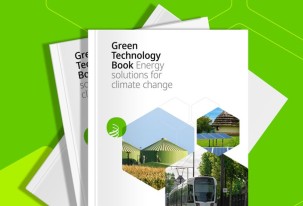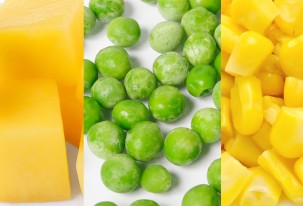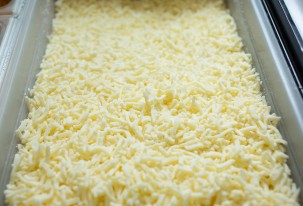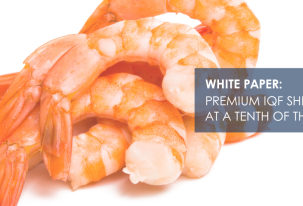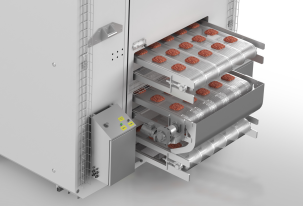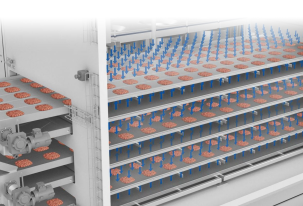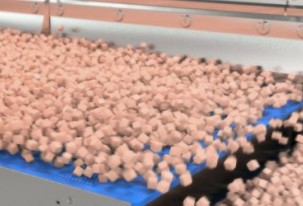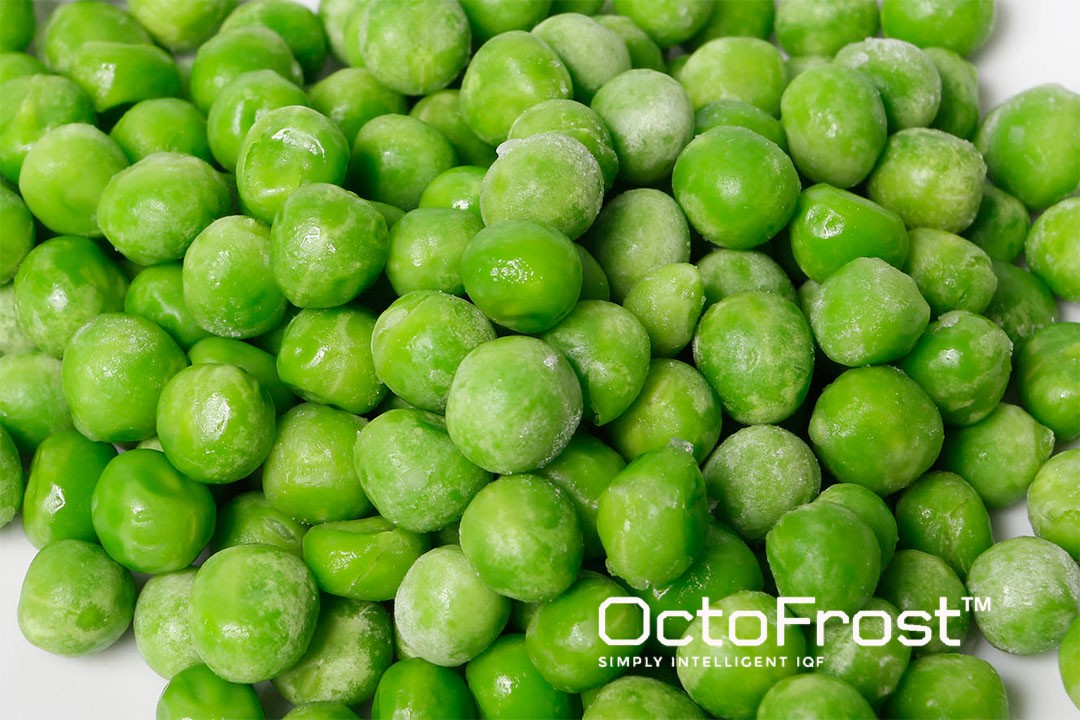
Could IQF Food Be a Viable Solution for a Sustainable Future?
With increasingly polluted oceans, historically low underground water levels, increasing CO2 levels in the atmosphere and a climate emergency in our laps, it is no wonder that one of the top three sustainability food trends for 2021 is reducing food waste. This is a crucial priority which needs to be taken seriously if we intend to address food insecurity and mitigate climate change.
“According to the UN Environment Programme, roughly one-third of the food produced in the world for human consumption every year – approximately 1.3 billion tones – becomes lost or wasted.”[1]
A baffling fact taking in account the approximately 800 million undernourished people in the world today and devastating consequences of the seemingly unstoppable climate emergency.
If we look into the waste of fruits and vegetables, the situation is even more severe. In the developing countries, 40% of food waste is happening at post-harvest and processing stages while in the industrialised countries - more than 40% of food waste occurs at retail and consumer levels. In the case of exports from developing to developed economies – the math is frightening.[2] The waste from fresh produce can reach the exorbitant 70-80% if we count from the field till end-consumers’ kitchens. Moreover, according to European national studies, “fresh fruit and vegetables contribute to almost 50% of the food waste generated by EU households”.[3]
Who can do what?
So how can we challenge this food waste disaster? One way visionary food processors try to do their part is the practice of upcycling foods by adding value to by-products and surplus produce, while another brave and successful trend is to market and selling the so called “ugly foods” or imperfect-looking products that
may be undersized, of the wrong colour, or blemished in some way. There are also organizations trying to tackle the date label confusion, especially in dairy industry, and so help eliminate food waste.
Equipment manufacturers, however, can bring their own share to the table. A well-known leader in engineering and manufacturing of Individual Quick Freezing (IQF) technology - OctoFrost company - believes that innovative IQF technology can be used to tackle food waste issue on many different levels.
First things first, what is IQF technology?
IQF stands for Individually Quick Freezing and it is achieved by using very cold and powerful streams of air to separate each piece of product (as opposed to old school block freezing) in the freezing tunnel and so get perfectly separated IQF food even with sticky and difficult foods such as diced fruits, berries or even shredded cheese, minced or marinated meats. The possibilities are vast in terms of products which can be IQF frozen and most of fruits and vegetables you will find in the frozen aisle of your supermarket, are IQF frozen.
When it comes to advantages of IQF food products, convenience is probably on the top for the end-consumer who can now defrost the exact needed amount and store the rest in their freezer (without the need of thawing the whole pack).
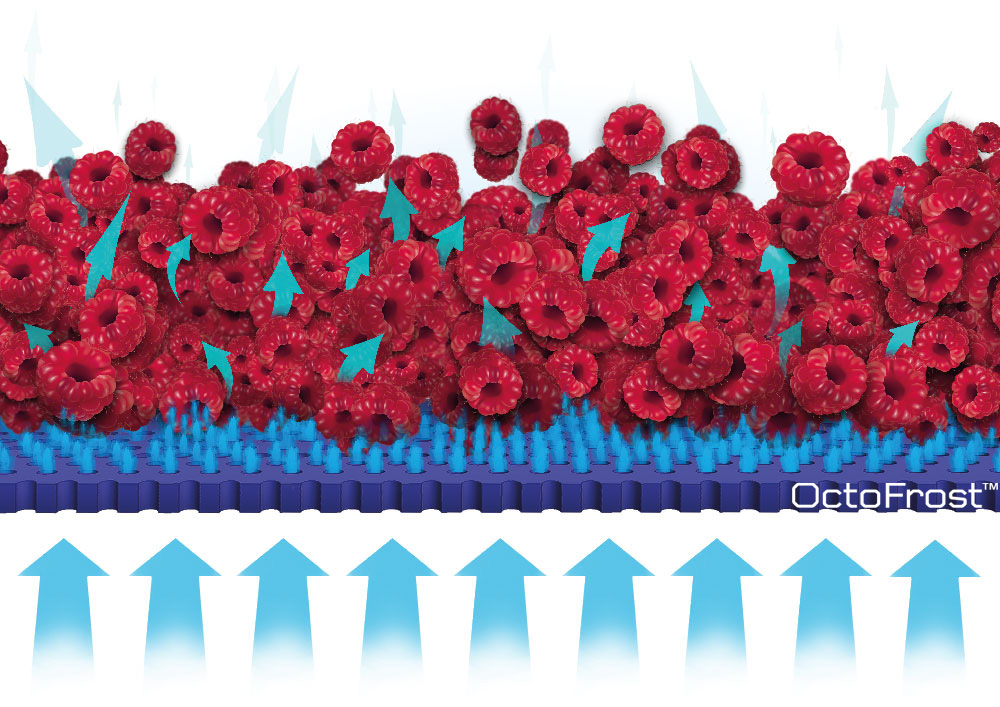
IQF Freezing Fluidization
Looks do matter
But is the convenience factor enough today? Some food industry experts would argue that. It seems like consumers have never been pickier about the quality, appearance, and nutritional value of their food. And this is where technological innovation comes to the rescue. Specifically, technological features that can make the frozen food products look just as appetizing as their fresh counterparts and lock in their nutrients – are the game changers in the consumer behaviour.
Fresher than fresh with IQF technology
Studies show that frozen fruits and vegetables are actually fresher than fresh produce and contains even more nutrients[4]. The reason for that is that frozen fruits and vegetables are usually harvested at the highest point of ripeness containing the most nutrients and taste, and the freezing process is just locking in all that goodness of a fully ripen product.
In the case of fresh produce, it takes more than two weeks from the day vegetables are being picked to the day these are being eaten, time spent during storage, transportation and on the shelves of the supermarkets. In all this time fresh vegetables can lose up to 45 per cent of important nutrients.[5]
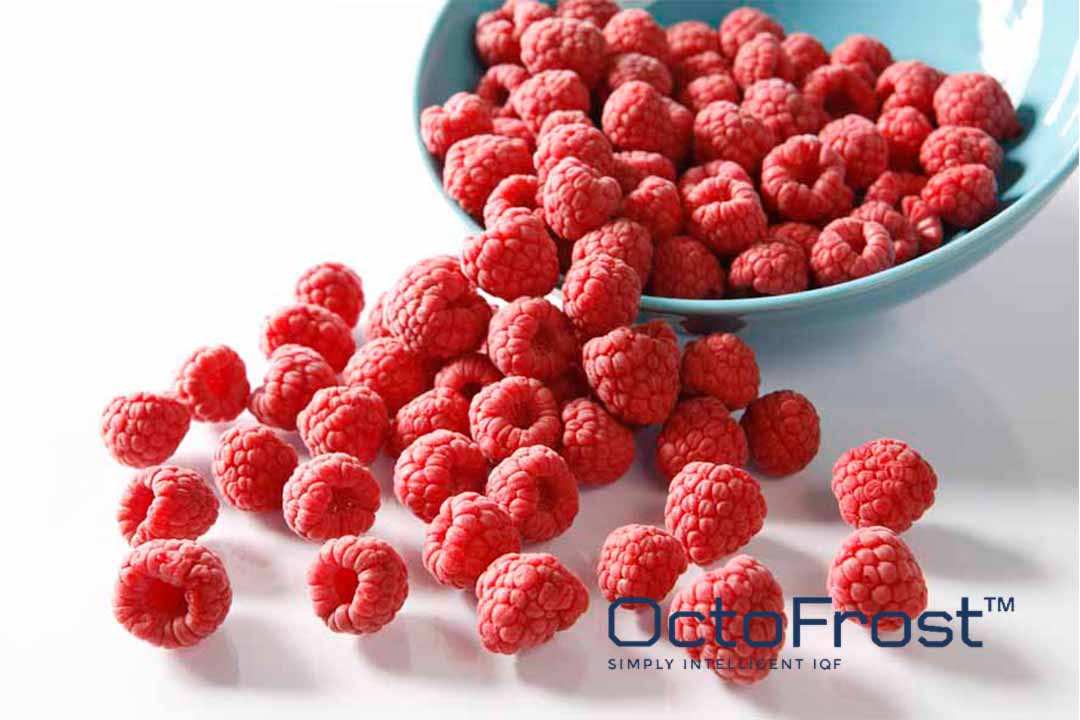 IQF Frozen Raspberry
IQF Frozen Raspberry
Will IQF food save the day?
It will take much more than that to tackle the food waste problem, but it can definitely play an important role in a very complex solution for a very complex problem.
From decreasing the household waste due to the convenience of using the exact needed amount while storing the rest in the freezer, the IQF technology can even help the emerging trend of upcycling foods – by dicing and IQF freezing otherwise discarded imperfect or uneven pieces of products.
In addition, it solves the issue of food distribution in regions with an abundance of fresh produce where exorbitant amounts of fresh fruits and vegetables are wasted on the fields due to the impossibility of commercialization.
Last, but not least, the IQF technology can be at the heart of setting up sustainable business models in the economically challenged communities where fresh produce is or can be harvested.
All in all, high-quality frozen products are indeed fresher, healthier, more convenient, and more sustainable for the future of our planet. Consumers and businesses altogether must and will shift the paradigm about how IQF food products are produced and consumed as there is no one single solution for the global food waste problem, but we shall need to put together many different, innovative and courageous ideas in order to have at least a chance to prevail.
[1] https://www.unenvironment.org/thinkeatsave/get-informed/worldwide-food-waste
[2] https://www.foodbank.org.au/food-waste-facts-in-australia/
[3] https://ec.europa.eu/jrc/en/news/eu-households-waste-over-17-billion-kg-fresh-fruit-and-vegetables-year
[4] https://www.dailymail.co.uk/health/article-1255606/Why-frozen-vegetables-fresher-fresh.html
[5] https://www.dailymail.co.uk/health/article-1255606/Why-frozen-vegetables-fresher-fresh.html
GET IN TOUCH


